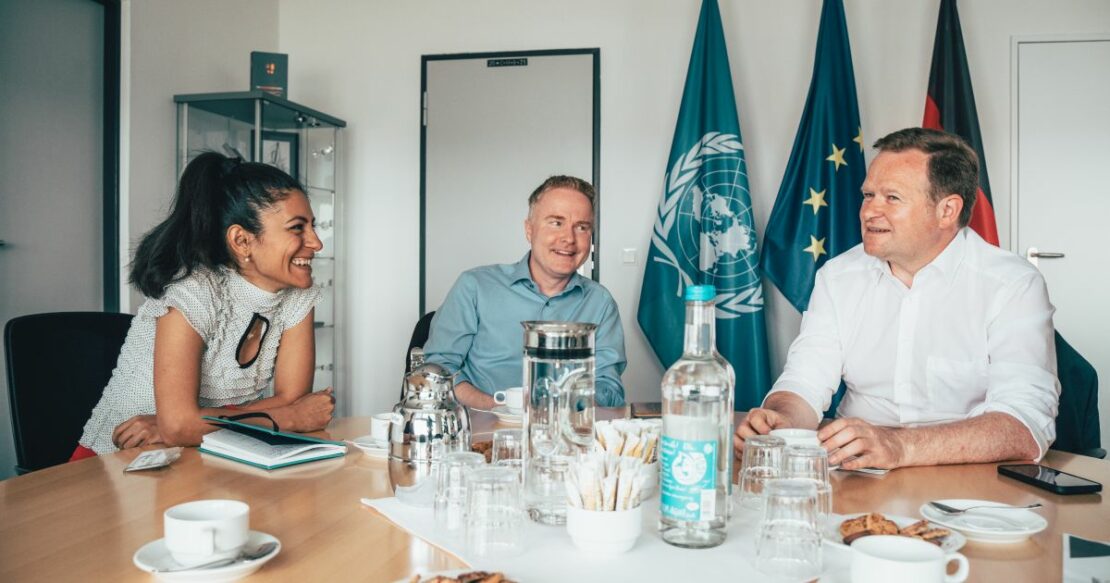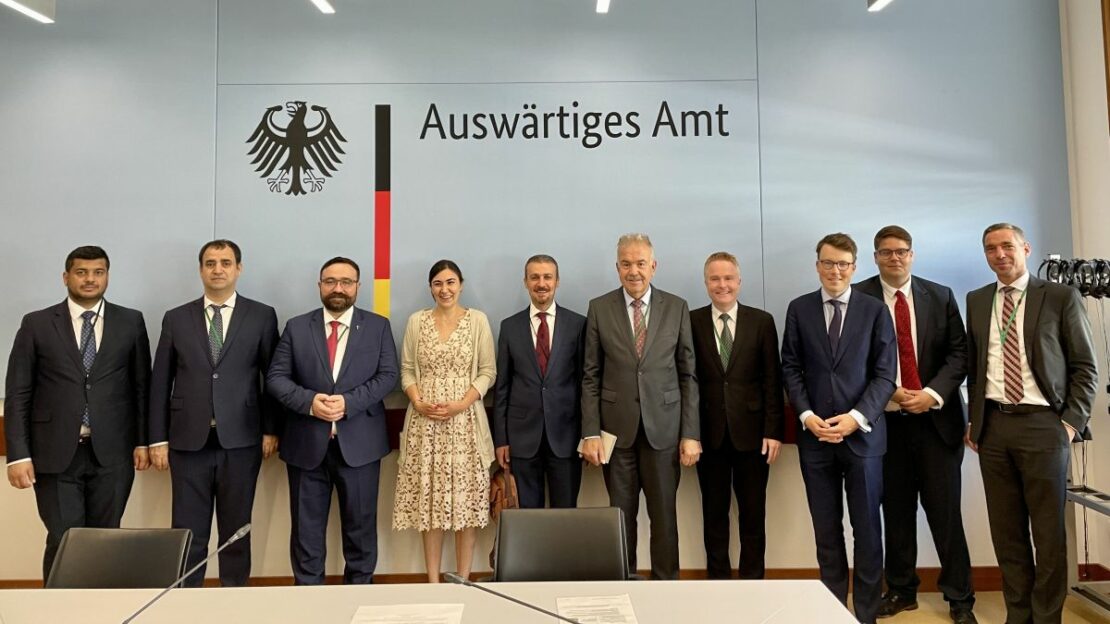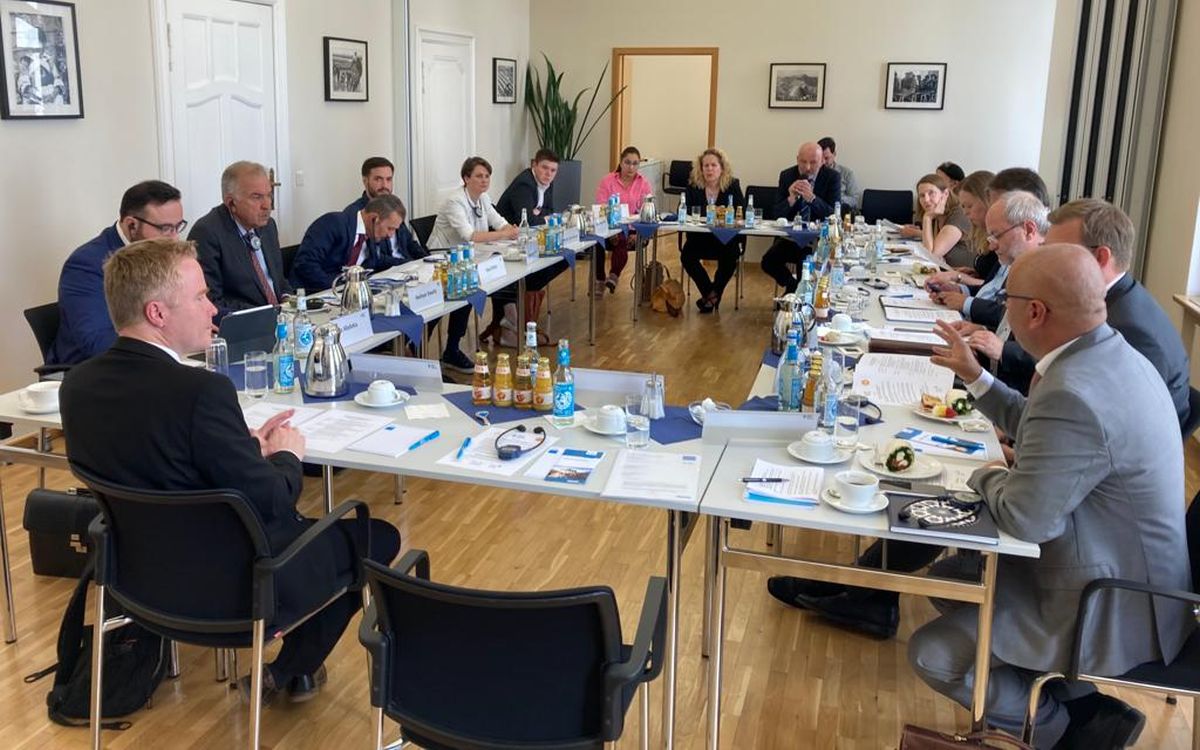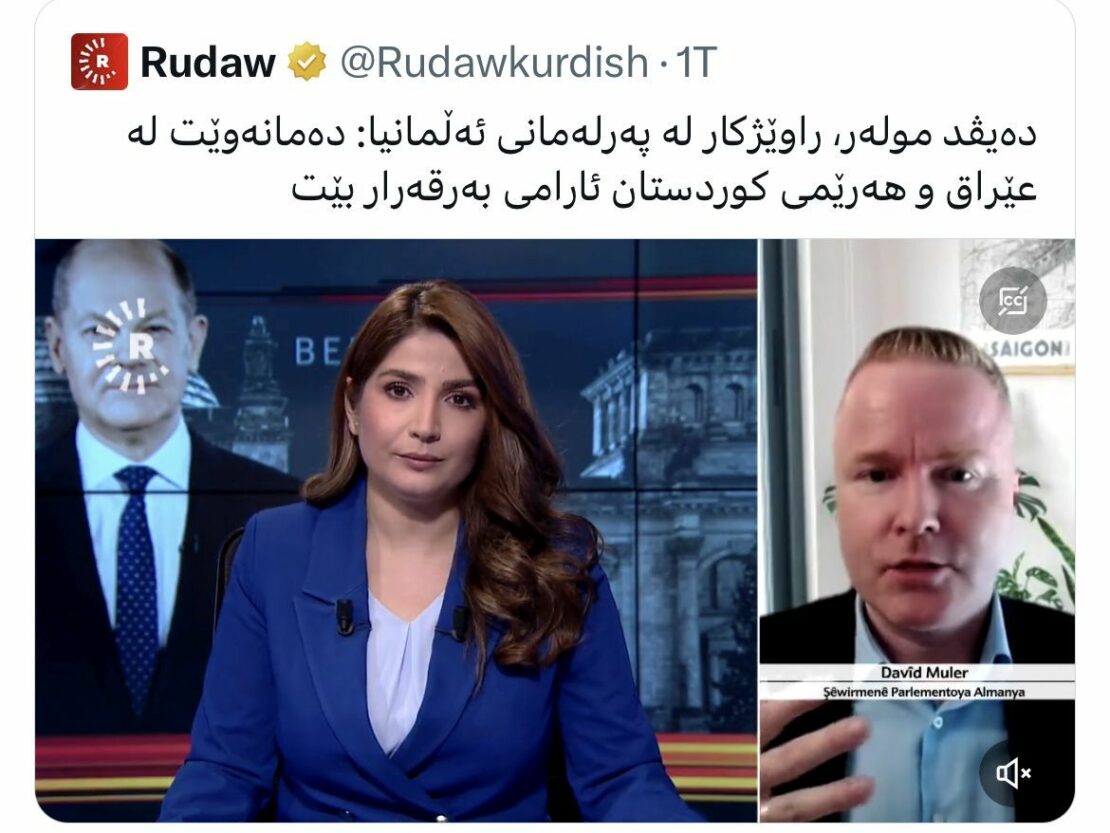Building bridges from heart to heart
Insights into over five years of engagement in Iraq
Konstantin Mascher, Chairman of the ojcos foundation, in conversation with David Müller, Political Advocate for Religious Freedom in Iraq

David, you are active as an advocate for Religious Freedom in Iraq and Germany. How are you doing in this role and activity?
I have had many exciting roles in my professional life. The last five years of my career have been among the most exciting and socially prominent of my life. What’s more, the demands placed on me have never been so close to my personal profile and calling.
You have had an incredible amount of experience. What have been the most important milestones in your work?
There are quite a few. Here is a random selection:
- Placement of an Iraqi partner as a speaker at a congress in the German Parliament in 2018. This was our first major political achievement. We have now held our third event with an Iraqi delegation and German parliamentarians in the German Parliament.
- Invited to give a guest lecture on religious freedom at the Department of Islamic Sience at Baghdad University..
- My participation in the delegation of the Commissioner for Freedom of Religion and Belief, Frank Schwabe MP, on his trip to Iraq.
Thanks to your commitment, the ojcos foundation is now well networked. Can you give us some examples?
We work closely and on a basis of trust with members of parliament from various parties and their offices, as well as with policymakers in the German Federal Ministry for Economic Cooperation and Development (BMZ) and the German Foreign Office.
In Iraq, we have friendly and close relationships with leaders of various religious communities, tribal leaders, government and parliamentary politicians, academics and activists.

You have developed a great expertise through your travels. What committees do you advise?
In addition to many personal relationships in politics, the ojcos foundation is also a member of the international network organization PaRD (International Partnership on Religion and Sustainable Development) with 162 members from 8 religions. Of these, 127 are religious organizations, 8 are governmental organizations, 6 are multilateral organizations and 10 are academic institutions (as of June 2023).
The goal is to enhance the social capital and capacity of diverse faith communities for sustainable development and humanitarian assistance through increased institutional communication and coordination.
We are also part of the Thematic Team on Religion and Development of the German Federal Ministry for Economic Cooperation and Development. The team includes representatives of various religious communities, non-governmental and faith-based organizations, development cooperation agencies and academics. The thematic team provides mutual impulses for the content and strategic work of its members and brings the debate on religion and development into the political and social arena.
I also advise various organizations such as the Ecumenical Council of Berlin-Brandenburg, the Evangelical Alliance in Germany, the Central Council of Ezidis in Germany, the worldwide network of converts “Communio Messianica” and am on the advisory board of the Central Council of Oriental Christians in Germany.
Our goal is to fill in the gaps. There are so many aid organizations doing so much good in the country. Why is this political level necessary? What makes your work unique?
In recent years, several billion euros from German taxes and church donations have gone to Iraq. This is a good thing. However, most of this money has been spent on disaster relief and reconstruction. Such measures ensure short-term survival, but do not change the fundamental situation of coexistence and contribute little to a perspective of living in peace and security.
We are deeply involved. We meet a wide variety of people, treat them with love and interest, and try to understand the complexity of what is happening. As a result, we become bridge builders and actors who are appreciated by all sides, who live the idea of togetherness, demand it and implement it in small steps.
In Germany, these partners and topics are known to only a few politicians, but are met with great interest. Unfortunately, there is too much focus on infrastructure projects and too little commitment to reconciliation, peace building and togetherness.
Our vision is to build bridges between Iraq and Germany. What does that look like?
This is done in three areas.
I speak personally to policymakers about my experiences and provide an up-to-date assessment of the situation in Iraq. It is often background information that puts things in context and makes them understandable to our Western way of thinking. Our newsletter with expert publications from our international network provides well-founded insights.
Together with the Central Council of Ezidis in Germany, we have now invited a delegation from Iraq to Germany for the third year in a row and held a confidential background event for members of the parliament We have also made it possible for them to meet with relevant ministries. I also regularly bring political actors together with Iraqi partners from our network.
Finally, I regularly share this with our Iraqi friends. The knowledge of these activities and the interest in their situation is very important for them and gives them hope and encouragement in their situation.

What does our motto “We invest in relationships” mean to you?
The various groups in Iraq have experienced displacement, violence, terror, and even genocide in different ways over the past centuries. At the latest with the emergence of the so-called “Islamic State”, the religious diversity and mutual trust in the region have been severely damaged. Without rebuilding relationships, there can be no common life, no politics, no economic activity, and ultimately no interfaith coexistence.
But the following also applies to German politics: “Big doors open on small hinges.” There is a lot of scientific knowledge, which is often complicated and sometimes contradictory. A trusting relationship in which you can ask questions honestly and don’t feel used or exploited is a great treasure (not only) for political decision-makers.
You go to Iraq three or four times a year. Why is that important?
In Oriental culture, spending time together is a sign of great appreciation. Preferably over a meal.
My trips to Iraq are a sign of hope for the people there. Not only do they feel they have no prospects, but they also feel forgotten by the rest of the world. We are repeatedly told that we are highly trusted and valued because a) we visit the country regularly, and b) we travel with an attitude of listening and partnership.
How has this changed your consulting work here in Germany?
The situation in Iraq is constantly changing. Various actors in the country are fighting for dominance. There are also international actors, such as the USA, Iran and Turkey, whose interests have a concrete impact on the situation in Iraq.
There is no independent press in Iraq and almost no German correspondents. The news situation in Germany is therefore very unclear and superficial. My regular visits to Iraq give me an insight into everyday reality. Since I am not subject to the same security restrictions as members of parliament or employees of large aid organizations, I am one of the few Germans who can take a taxi in Baghdad, walk through the bazaar with friends or visit the city center of Mosul.
The trusting relationships with competent actors in Iraq give me a growing understanding of the complexities. It is so important for smart decisions in Germany to understand why something is happening and who plays what role in it.

You are a connected and incredibly dedicated person. You move naturally between a remote Iraqi village and the German Parliament, opening your heart to both sides. How do you stay mentally flexible?
As a devout Christian, I am deeply convinced that God loves all people and that they have dignity and a heart with dreams and emotions. Because of my personality and positive life experiences, I meet my neighbor almost reflexively on a heart level. I want to connect people and win them for a cause.
Iraq is not safe everywhere. How are you and your family?
On the one hand, my wife and I have great faith in God and love it when life goes off the rails. On the other hand, I know that I have influential friends in Iraq who are available to me day and night and who feel responsible for my safety. For example, I only make new contacts after checking their background with friends.


